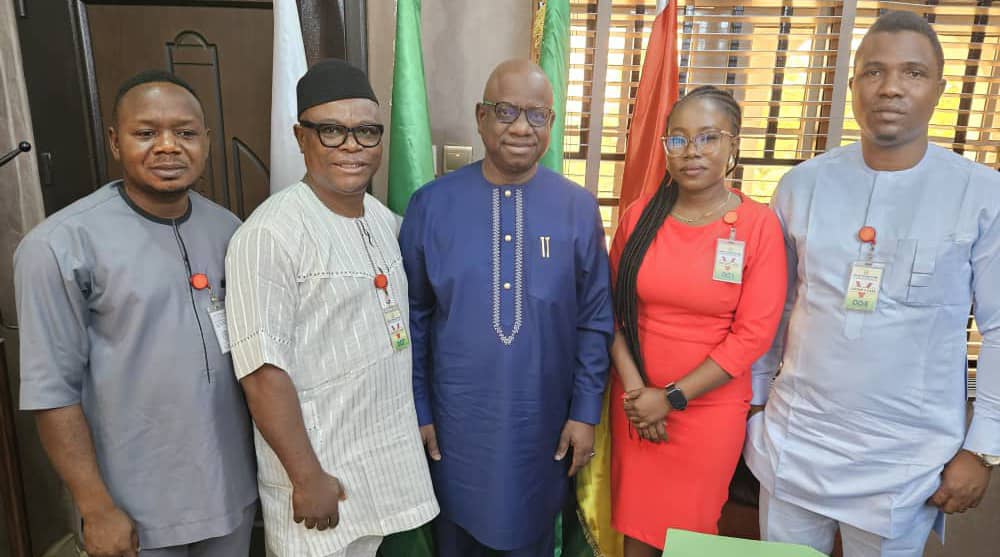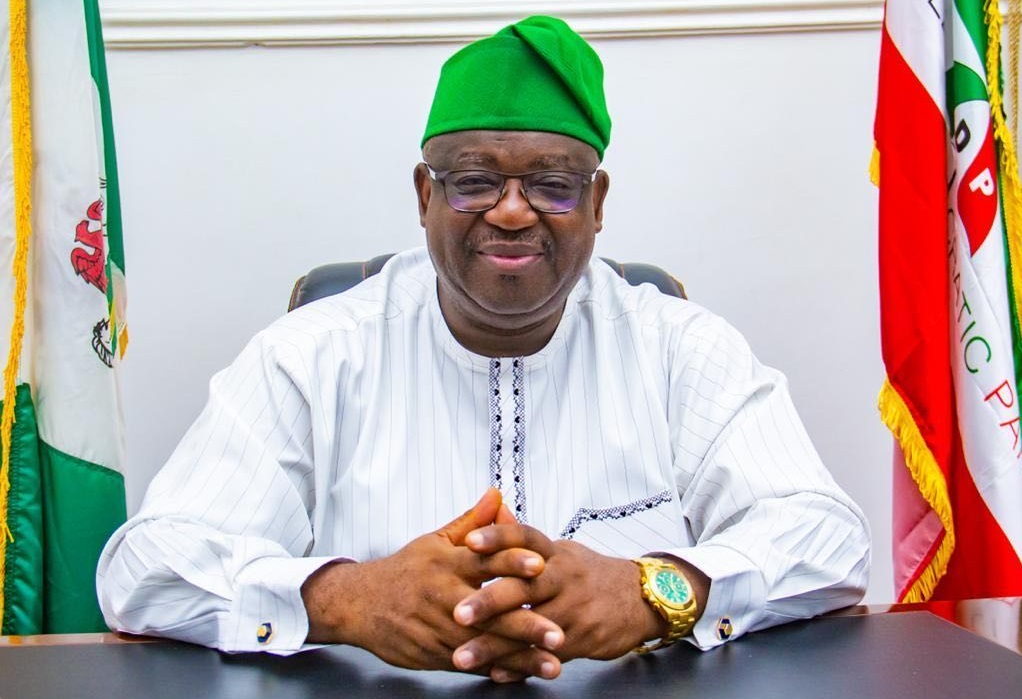News
Nigeria loses over $200bn to corruption, procurement irregularities — McArthur Foundation

The MacArthur Foundation has said that a staggering sum of over $200 billion is estimated to have been lost in Nigeria between 1970 and 2008 due to widespread corruption and procurement irregularities.
According to the Foundation, the massive financial haemorrhage occurred through various channels, including inflated contracts, dubious asset disposals, and outright theft of resources, reports The Guardian.
Deputy Director for Nigeria at the MacArthur Foundation, Amina Salihu, made the revelation in Abuja yesterday at a high-level town hall meeting to commemorate the 2024 International Anti-Corruption Day.
The Guardian reports that the meeting, aimed at addressing systemic challenges in Nigeria’s public procurement processes, was organized by Accountability Lab Nigeria in partnership with the Public and Private Development Centre (PPDC) and the United Nations Office on Drugs and Crime (UNODC), with support from the John D. and Catherine T. MacArthur Foundation.
The event, themed “Tackling Procurement Fraud and Its Far-Reaching Consequences: A Collective Responsibility,” brought together government officials, civil society organisations, private sector representatives, and international development partners.
Salihu underscored the importance of ensuring transparency, competition, and integrity in the country’s procurement processes.
She said, “So it seems our work is never going to be done because that is a potential area where we can meet the needs of citizens. It is also the potential area where our country, and also our continent, is haemorrhaging our lifeblood because these resources actually are life’s work, and it’s our lifeblood.
“And you know, whenever you look up these things, you get all kinds of different statistics that trouble you. Between 1970 and 2008, over $200 billion was lost in Nigeria through procurement, through inflated contracts, through asset disposals that are not very straightforward, through resources that have been hidden under the table.”
She stressed the need for effective regulation and oversight to prevent corruption and ensure that resources are allocated efficiently.
She also acknowledged the importance of collaboration between government, civil society, and the private sector to promote transparency and accountability.
According to her, corruption in Nigeria’s procurement process has severe consequences, including the diversion of resources meant for essential public services.
On his part, the Country Director of Accountability Lab, Friday Odeh, lamented that Nigeria’s public service is plagued by a significant lack of accountability.
He noted that this accountability gap has led to rampant abuse of procurement processes and blatant misuse of public resources, resulting in substantial financial and temporal losses for the country.
He said the absence of accountability enables corruption, allowing public officials to exploit resources for personal gain rather than serving the nation’s best interests.
“Currently, public procurement processes are carried out without transparency, such as unpublished procurement information, which leaves citizens in the dark about how decisions are made and deprives them of the chance to track the progress of projects,” he said.
The UNODC Representative, Maximilian Menhard, said the International Anti-Corruption Day offers a crucial opportunity to raise awareness about procurement fraud, commit to integrity in public procurements, and agree on relevant follow-up actions.
He said: “Corruption In public procurement has profoundly negative impacts on government spending, undermining market competition, and impeding economic and sustainable development. It leads to governments paying inflated prices, often resulting in substandard goods and services, a lack of accountability, and an erosion of public trust.
“A procurement system lacking transparency, competition, and integrity is fertile ground for corrupt behaviour, and while implementing a public procurement system based on these principles can be challenging.”
Lucy Abagi, CEO of the Public and Private Development Centre (PPDC), revealed that a recent report by her organisation exposed significant transparency gaps in Nigeria’s public procurement processes.
The report found that over 56% of Freedom of Information (FOI) requests for procurement information went unresponded to, highlighting the challenges citizens face in accessing such data.
She said this lack of transparency undermines accountability and trust in government, enabling corruption and inefficiency to persist.
News
Guinea Woos Nigerian Investors to Join $20bn Projects

News
Nigeria’s inflation jumps to 24.23% in March 2025

Nigeria’s headline inflation rate rose to 24.23% in March 2025, according to the official government data source, the Nigeria Bureau of Statistics (NBS).
The rise in the country’s inflation rate, from 23.18% back in February 2025 to 24.23% in March 2025, reflected a major increase in the rising commodity and energy costs in the last few weeks.
According to the March 2025 Consumer Price Index (CPI) Report which measures the inflation rate released by the government agency on Tuesday, the country’s food inflation rate was 21.79% year-on-year in March 2025.
The food inflation rate, however, showed a decrease compared to the food inflation rate of 23.51% recorded in February 2025.
Economists had predicted that the country’s inflation rate which decreased minimally in February would rise when the Dangote Refinery and the state-run NNPCL got entangled in a petrol price war that culminated in the temporary termination of a naira-for crude agreement between the two oil companies and the subsequent increase in the pump price of petrol.
Some observers had also said the minimal reduction in the prices of food commodities experienced earlier in February was not sustainable, attributing the temporary decline in the prices of food to the importation intervention of the Federal Government.
Food and commodity inflation have skyrocketed as Nigerians battle what can pass for the worst cost of living crisis since the country’s independence over six decades ago, a development that economic wizards have attributed to President Bola Tinubu’s twin policies of petrol subsidy removal and unification of the forex rates.
News
Plateau 51: Mutfwang mourns, says “we failed you”, begs affected community

Governor Caleb Mutfwang of Plateau State has apologised to the people of Bassa Local Government Area (LGA) for the failure of government and security agencies to protect lives and properties.
Fifty-one persons were gunned down early Monday in the Zikke community of the LGA, with houses razed and many displaced about two weeks after a similar attack led to the killing of scores of persons in Bokkos Local Government Area.
Less than two days after the most recent assault, Governor Mutfwang apologised for the government’s inability to protect the people.
Fifty-one persons were gunned down early Monday in the Zikke community of the LGA, with houses razed and many displaced about two weeks after a similar attack led to the killing of scores of persons in Bokkos Local Government Area.
Less than two days after the most recent assault, Governor Mutfwang apologised for the government’s inability to protect the people.
The governor said this on Tuesday at the palace of the Paramount Ruler in Miango.
“I will tell you the truth: I have been crying since yesterday because I had trusted God that all the arrangements were put in place, that this will not happen again. We have made investments in security,” he said.
But like all human arrangements, sometimes they fail. I want to admit that on Sunday night into Monday morning, we failed you. Please, forgive me.”
He urged the people not to relent in their efforts to secure their communities and ensure that they complement security agencies’ efforts by providing vital information for intelligence gathering and expose the antics of the criminals.
Governor Mutfwang, in the company of security chiefs and members of the state executive council, was in Zikke community to commiserate with the people on the death of over fifty persons killed in Monday’s attacks.
The Paramount Ruler of Irigwe land, Ronku Aka, who is the Brangwe of Irigwe, urged the government to come to the aid of the communities with the provision of social amenities in the area.
The governor and the entourage also went to see some of the families who lost their loved ones in the attack. The victims have been buried just as members of the community demanded action to stem the rising wave of insecurity in the state.
Plateau State has been a hotbed of attacks, but the renewed spate of attacks adds a fresh layer of twist to the decades-long crisis rocking the North-Central state.
After the most recent assaults, President Bola Tinubu ordered security agencies to fish out the masterminds, describing the attacks as condemnable.
While experts have linked the lingering Plateau crisis to farmers-herders tussle for resources, Governor Muftwang said it was sponsored and genocidal.
According to him, over 64 communities in the state have been taken over by gunmen.
-

 News11 hours ago
News11 hours agoSHOCKING! One month after giving birth, woman discovers another baby in her womb
-

 News12 hours ago
News12 hours agoTears, anguish as Plateau Community buries 51 killed by bandits
-

 News9 hours ago
News9 hours agoCBEX: 60 fraudulent Ponzi scheme operators to avoid in Nigeria
-

 News11 hours ago
News11 hours agoAngry investors raid CBEX office, loot assets in Ibadan after digital Platform crash
-

 News17 hours ago
News17 hours agoPeter Obi speaks as Benue govt. blocks humanitarian visit
-

 News18 hours ago
News18 hours agoFUOYE VC suspended over sexual harassment allegations
-

 Politics11 hours ago
Politics11 hours agoIgbo Youths Set To Mobilize 5 Million Man-March In Support Of Tinubu, Kalu
-

 News11 hours ago
News11 hours ago‘Not something I’d wish on anyone’ — Melinda Gates opens up on divorce


















